#voiceandmatter: Post Conference Thoughts
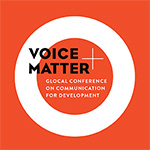 Voice & Matter – Glocal Conference on Communication for Development took place at Roskilde University and Malmö University on 17–20 September 2014. Around 120 people, from more than 30 different countries, visited the conference every day. Add to that the around 100 people per day who followed the conference online.
Voice & Matter – Glocal Conference on Communication for Development took place at Roskilde University and Malmö University on 17–20 September 2014. Around 120 people, from more than 30 different countries, visited the conference every day. Add to that the around 100 people per day who followed the conference online.
Two of the conference participants on-site were Alejandro Barranquero, Associate Professor at Universidad Carlos III de Madrid, and Sergio Villanueva Baselga, PhD Candidate at Universitat de Barcelona.
“This is my first time in Roskilde! I’ve wanted to come for a long time, last year, the previous year … I’m very glad to be here! The Ørecomm festival is highly valued in the field of communication for development, and being here is very useful for us,” says Alejandro.
“I’m looking very much forward to the participatory video workshops,” says Sergio, and continues: “I’m presenting on the subject during the conference, so attending both of the workshops was an easy choice to make.”
For examples of the collaborative work produced in the participatory video workshop that took place in Malmö, look here.
Andrea Cornwall’s opening speech on “Reframing Development: From Assistance to Global Justice” set a perfect tone for the remainder of the conference. In the conference evaluation it was clear that her speech, alongside the Politics of Hope panel, featuring a special interview with Arjun Appadurai, stood out for many of the participants.
“Andrea brought up a really good example in the ill prepared film producer who completely managed to misinterpret the reality of a group of Indian sexworkers. She brought up some very important voices and reminded us, a big crowd, most of us from the global north, about the importance of reflecting on the things we do,” says Thomas Tufte, professor at Roskilde University and co-director of Ørecomm.
For more thoughts on Andrea’s talk, read conference participant and development blogger Thomas Murphy’s blog post “All This Talk about Uplifting Girls isn’t Helping Them.”
The much appreciated panel “Voice: The Return of the Politics of Hope?” was based on an interview with Arjun Appadurai, made by Ronald Stade, professor at Malmö University. With speakers such as Sheela Patel from Slum Dwellers International – the largest urban slum dweller movement in the world, nominated for the Nobel Peace Price in 2014; and the prolific and engaging anthropologist Thomas Hylland Eriksen, the panel attracted a big crowd.
“I think the panel was successful for two reasons: first and foremost, because of the panellists, whose contributions were pertinent and original; secondly, because the topic is timely yet, in a sense, timeless. Poverty, powerlessness and self-empowerment can be studied from the point of view of a humanist, structuralist, activist etc. What seems to remain constant in all this is the human capacity for hope. Maybe this can inspire us to continue the conversation,” explains Ronald Stade.
Watch the interview and panel here.
Marjan Besuijen from Making All Voices Count, South Africa, was invited to speak in the policy panel on “The Role of Media and Communication in the Post 2015 Agenda.”
Have you enjoyed the conference so far?
“I’m usually not a big fan of conferences. But what I like with this one is, let me put it this way – I have been to conferences that claim to be a mixture of practitioners and academics, but in the end they tend to be completely academic! Here I actually think there was a mix, with very practical sessions like the pitching session I went to. So that was nice!”
What is your main concern about the post millennium development goals?
“These goals are only part of a bigger puzzle, but what I do find is that the previous ones actually became much more important than we thought. A lot of people thought they weren’t good enough, but in the end a lot of people actually worked for them and around them. It’s in the middle of the process now and it might actually be quite important! I find it very difficult to influence though, but it’s also because we are not an advocacy organisation.”
What would you like to see on the agenda?
“Our main aim is to get good governance, transparency and accountability on the agenda. I would also like to see a framework that makes it possible to work on a national level, so that activists and civil society feel that they have the support of the international framework, something that gives them a hook so that they can hold their governments accountable – you agreed to this framework, now put it into practice in our own context.”
For more about the future of media and communication in the post 2015 agenda, watch the recorded stream here.
Another stand out session was the film screening of “The Stuart Hall Project” (2013) by John Akomfrah, followed by a stimulating, intellectual conversation between Baroness Lola Young and Faye Ginsburg. Tuning in to the much loved voice of cultural theorist Stuart Hall, who past away earlier this year, accompanied by the music of Miles Davis, the subject of voice was actualized in a very concrete way, and offered a moving closure to the conference.
Listen to Baroness Lola Young and Faye Ginsburg discussing the work of Stuart Hall here.
For Thomas Tufte one of the most important things about the conference was to see that people were eager to make contact and share experiences.
“People seemed to be having a good time, and most importantly – there’s been a lot of talking and networking going on; during the coffee breaks, during lunch, at the end of the day. And this for me is one of the most important things, to see that people have a lot to discuss. I’m really happy about that!”
More Voices about the Conference
“I like the mixture of participants from all disciplines; students, practitioners, journalists, and the online and offline thing – all the material from the conference is there forever! We can view all these recordings, and there is so much inspiration. I think it will help me with my dissertation!”
Anand Sheombar, ICT Consult and PhD Candidate, Netherlands
“I just started the ComDev master’s programme at Malmö University, and decided to come here in person to see the school and feel that it’s real and not just something I do online. I work in corporate communications, so it’s been very useful for me to meet people here who actually work in the field, and to learn about the actual stuff going on on the ground – I especially liked the talks by Sheela Patel and Stefania Milan.”
Krystle van Hoof, Public Information, World Food Program, Bamako, Mali
“It’s been really nice to see that many of the speakers of the conference are academics who also have work experience from the real world. I think that’s important. I’m also very happy to see that this is an interregional conference! You don’t see that very often!”
Emma Svärdh, ComDev student, Malmö University
“I find myself here in a private civil society capacity, but then I’m always the communications manager for my job, so during every session I try to write something down that I can take back to my work. I found the ethnographic theatre session with Debra Spitulnik Vidali really interesting. She offered a very creative perspective on communication that I really enjoyed.“
Lisa Smyth, Communications Manager, Forest Stewardship Council, Bonn, Germany
 New PhD opportunities at the University of Leicester
New PhD opportunities at the University of Leicester Call for Abstracts: New Directions in Media, Communication and Sociology (NDiMS) Conference
Call for Abstracts: New Directions in Media, Communication and Sociology (NDiMS) Conference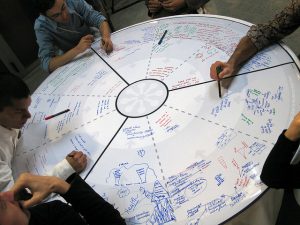 Ørecomm Team to Gather at the University of Coimbra
Ørecomm Team to Gather at the University of Coimbra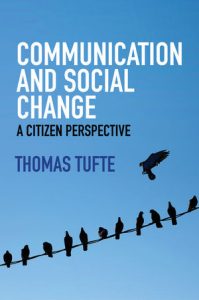 “Communication and Social Change – A Citizen Perspective” Published
“Communication and Social Change – A Citizen Perspective” Published C4D Network to Sum Up Global Communication for Development Practice
C4D Network to Sum Up Global Communication for Development Practice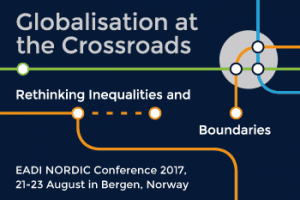 Entering Media and Communication into Development Conferences?
Entering Media and Communication into Development Conferences?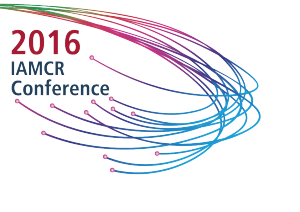 IAMCR Conference 2016: Communication for Development Highlights
IAMCR Conference 2016: Communication for Development Highlights Glocal Classroom Revisited – Storytelling & Social Change Leicester-Malmö
Glocal Classroom Revisited – Storytelling & Social Change Leicester-Malmö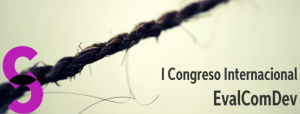 I EvalComDev International Conference: Call for Papers
I EvalComDev International Conference: Call for Papers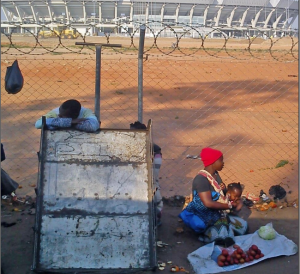 Looking for Media and Communication in Development Conferences: Devres 2016
Looking for Media and Communication in Development Conferences: Devres 2016